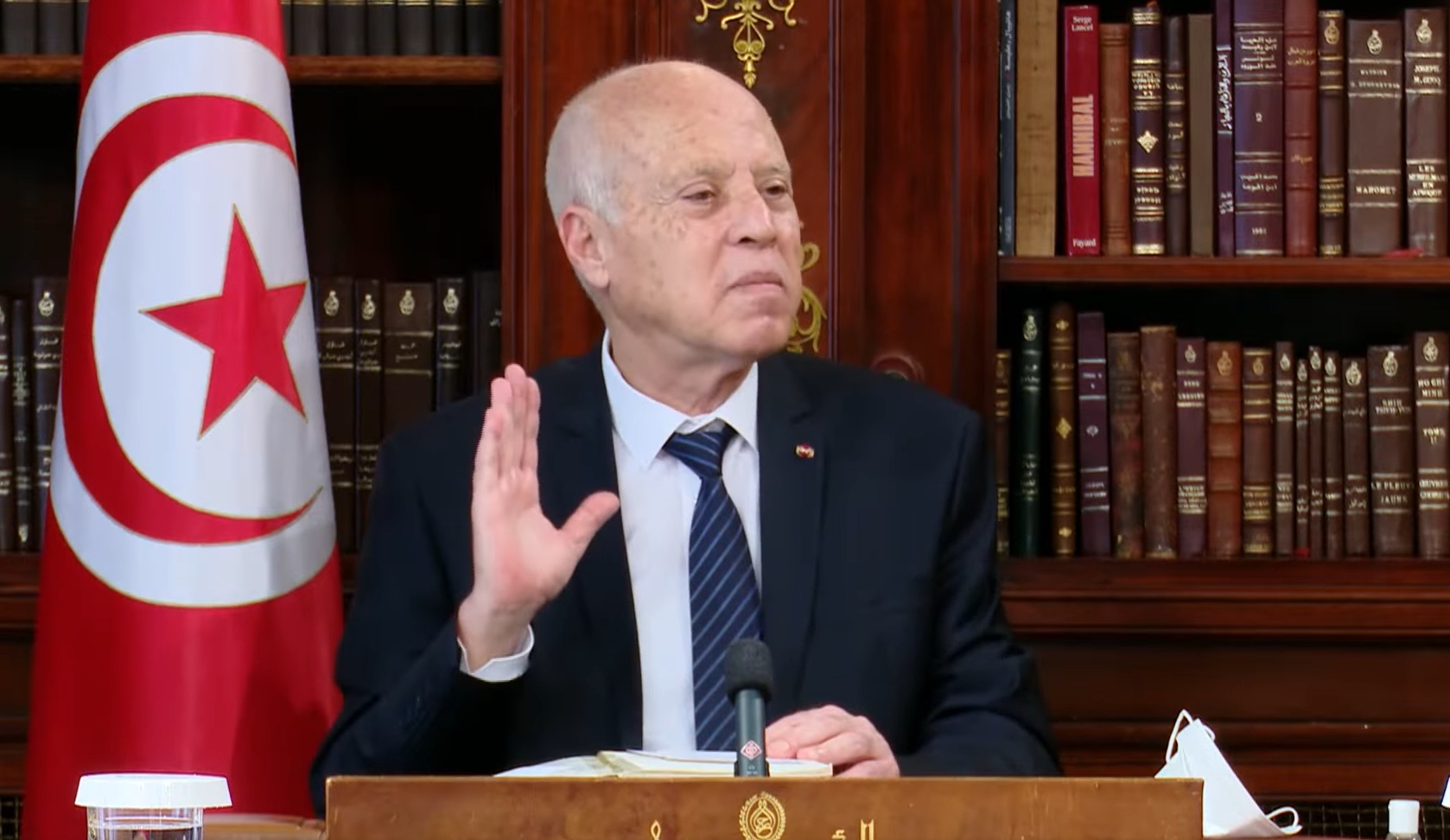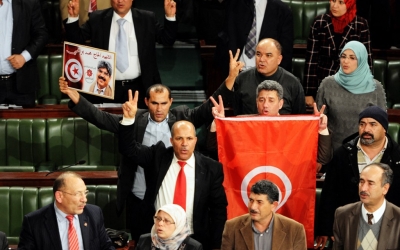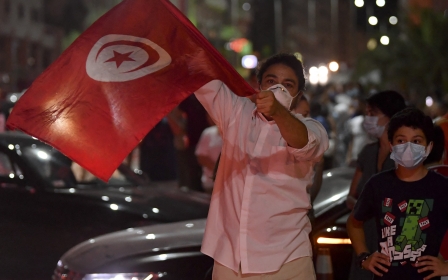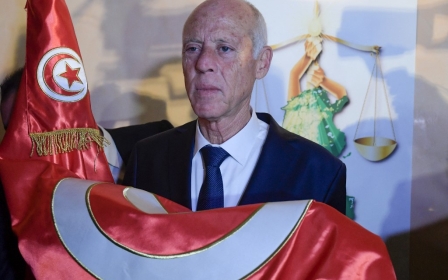Tunisia coup: Kais Saied vows to fight 'traitors' and 'mafia' in incendiary speech

Tunisia's President Kais Saied said on Tuesday he would not do deals with those he described as "traitors", nearly two months after he dismissed the prime minister, froze parliament and seized governing and judicial powers in a move critics have said amounts to a “coup”.
"I will not deal with... traitors and those who pay money to offend their country. No dialogue with them," he said in a video posted online by the presidency - in an apparent reference to the moderate Islamist Ennahda party, the biggest in the suspended parliament.
Local media have reported that Ennahda had paid a foreign lobbying company, something the party has denied doing.
"They paid nearly three million dinars ($1.1 million) to foreign lobbying groups to harm their country," alleged Saied in the video, without naming Ennahda.
Ennahda has called for a national dialogue to find a way forward after Saied’s move on 25 July thrust Tunisia into its biggest political crisis since the 2011 revolution that unseated longtime ruler Zine el Abidine Ben Ali.
New MEE newsletter: Jerusalem Dispatch
Sign up to get the latest insights and analysis on Israel-Palestine, alongside Turkey Unpacked and other MEE newsletters
Seven weeks later, Saied has yet to name a new prime minister or declare his future intentions.
Last week, one of his advisers told Reuters he was planning to suspend the constitution and offer an amended version for a public referendum.
The powerful labour union UGTT rejected that approach the following day and Saied then said any amendments to the constitution must be made within the existing constitutional framework.
The union, as well as Ennahda, other political parties and western democracies that have supported Tunisian public finances, have all urged Saied to quickly name a new government and to return to the constitutional order.
Saied, in his comments on Tuesday, said: "The government is important. But what is more important is how this government will work...The aim is to meet the demands of the Tunisian people."
Saied, a legal theorist and former law professor, was elected in 2019 and has billed himself as the ultimate interpreter of the constitution.
His power grab came amid chronic legislative infighting that had crippled governance. It was followed by a sweeping anti-corruption drive that has included detentions, travel bans and house arrests of politicians, businessmen and judicial officials.
Saied pledged once again on Tuesday to keep fighting corruption.
"This is a state with two regimes, an apparent regime, that of the institutions, and a real regime, that of the mafia that governs Tunisia," he said in the video. "I will not engage in dialogue with thieves.”
Over the weekend he said there would soon be nominations for a new government and spoke of a reform of the constitution.
Saied has justified his controversial moves by citing emergency measures in Article 80 of the constitution - despite his critics and many legal scholars saying it did not support his intervention.
In May, Middle East Eye reported on a leaked document that came from the office of Saied's chief of staff, Nadia Akacha, proposing the establishment of a "constitutional dictatorship" as a means of dealing with the country's mounting problems.
His moves have been criticised by judges and opponents - but some Tunisians, exasperated by their political class and its perceived corruption, impunity and failure to improve living standards more than a decade since the country's protests launched the "Arab Spring", see them as a necessary evil.
Middle East Eye delivers independent and unrivalled coverage and analysis of the Middle East, North Africa and beyond. To learn more about republishing this content and the associated fees, please fill out this form. More about MEE can be found here.





